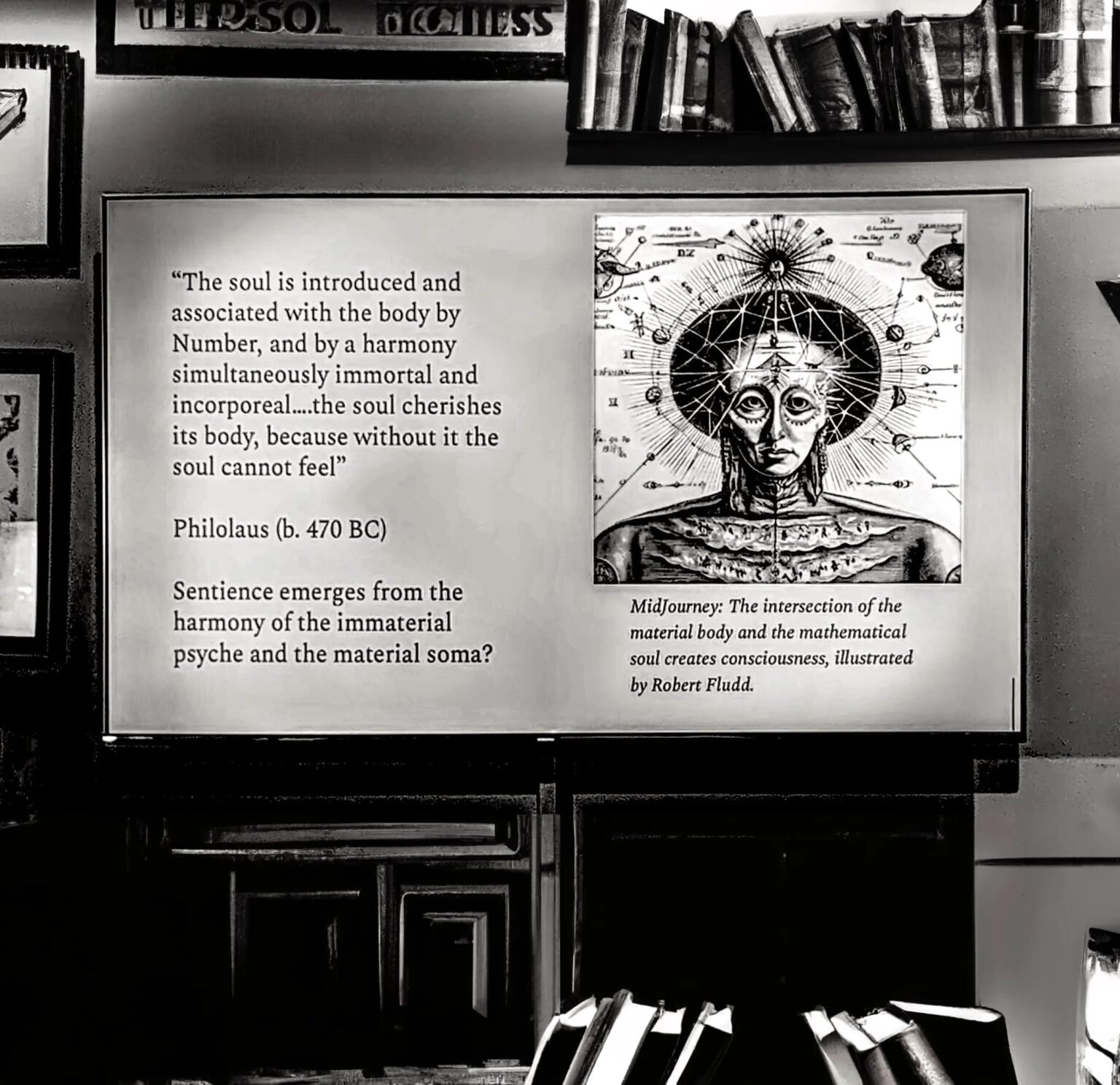A few weeks back, I had the chance to attend a lecture at the Embassy of the Free Mind, home of The Ritman Library, one of the most extensive collections of hermetic and esoteric books in the world. The newly appointed professor from the Department of Human Interaction at TU Delft, Derek Lomas, held the lecture.
Professor Lomas is very much involved in the research field of neural resonance, experimenting with the potential of AI to analyze brainwaves and using them as source material to generate media optimized for better user experiences. Think of generative music that adapts to your mood, images that can relax your eyes or, a holy grail in this field, the ability to write text directly from your mind.
At first, this all sounds very much future-oriented. So what was a scholar devoted to the design of future technologies like him doing in a place dedicated to preserving old forms of wisdom?
To my surprise, Lomas is very well-informed about classic philosophy, hermetic literature and Western esoterism. During his lecture, he took us on a journey through ancient schools of thought and traditions, offering a unique perspective on how to navigate the fast-paced world driven by AI. One proposal he put forward, which particularly resonated with my own beliefs, centred around the concepts of divination and Large Language Models (LLMs).
On Divination
Divination is often described as the art of gaining insight into the unknown, including predicting the future. A place well-known for this in times of ancient Greece was the Sanctuary of Eleusis, an oracle close to Athens. Prominent figures would visit it, including Plato, Aristophanes, Pythagoras, and Pericles, to name just a few. In the sanctuary, they would go through a series of secret rituals or “mysteries” guided by a sorcerer who would give them answers to their questions.
Geographical oracles like Eleusis are not the only source for divination. Tarot cards, the book of I Ching and the Jewish Kabbalah are examples of objects that for centuries have been used by individuals to get answers to difficult life questions.
It is worth being mentioned, though, that such answers are not absolute truths. And here is where divination meets LLMs.
AI chatbots as divination tools
People who consult divination tools like the Tarot, or the I Ching, or have visited a medium, should be familiar with taking the answers provided by these entities as guiding, hopefully insightful, pieces of advice. These answers tend to be bold, charged with words and symbolisms that may trigger confronting emotions in us, so we can get new perspectives on our search for truth.
Divinatory rituals are meant to breed spaces of self-reflection and create conditions for us to imagine. This is where Lomas claims divination tools resemble LLMs like Chat GPT, Bard or Claude. Their words should be taken as advice, tips and hints of different viewpoints. Not as facts.
Because, in the end, it is up to each of us to define our truth. This is what ancient Athens and hermetic philosophy promoted. “Know thyself” was written at the entrance of the city of Athens, for instance. Just like traditional divination tools, LLMs should serve as sources of advice, triggering introspection and challenging our perspectives. They can help us access information faster, but, for as long as we value human diversity and honour our potential to free thinking (a foundational principle of a place like The Embassy of the Free Mind), drawing conclusions about our life direction is a domain that requires the supervision of human minds.
Truth is an ever-evolving concept that demands constant readjustment. Think of politics, history or science. We are always perfecting these disciplines as we adjust them to the needs of our present, and in this process, we reassess the past and reenvision the future. This notion resonates with the fundamental principle of Hermetic philosophy: “The All is Mind; the Universe is Mental”. While divination tools and AI chats may provide us with answers, it ultimately falls upon each of us to embrace or reject them, and transform them into reality.
PS: Before the lecture attendees were asked to send questions to be answered by a neural network trained with Plato’s literature. You can read the questions I asked and the answers I received in this blog.
